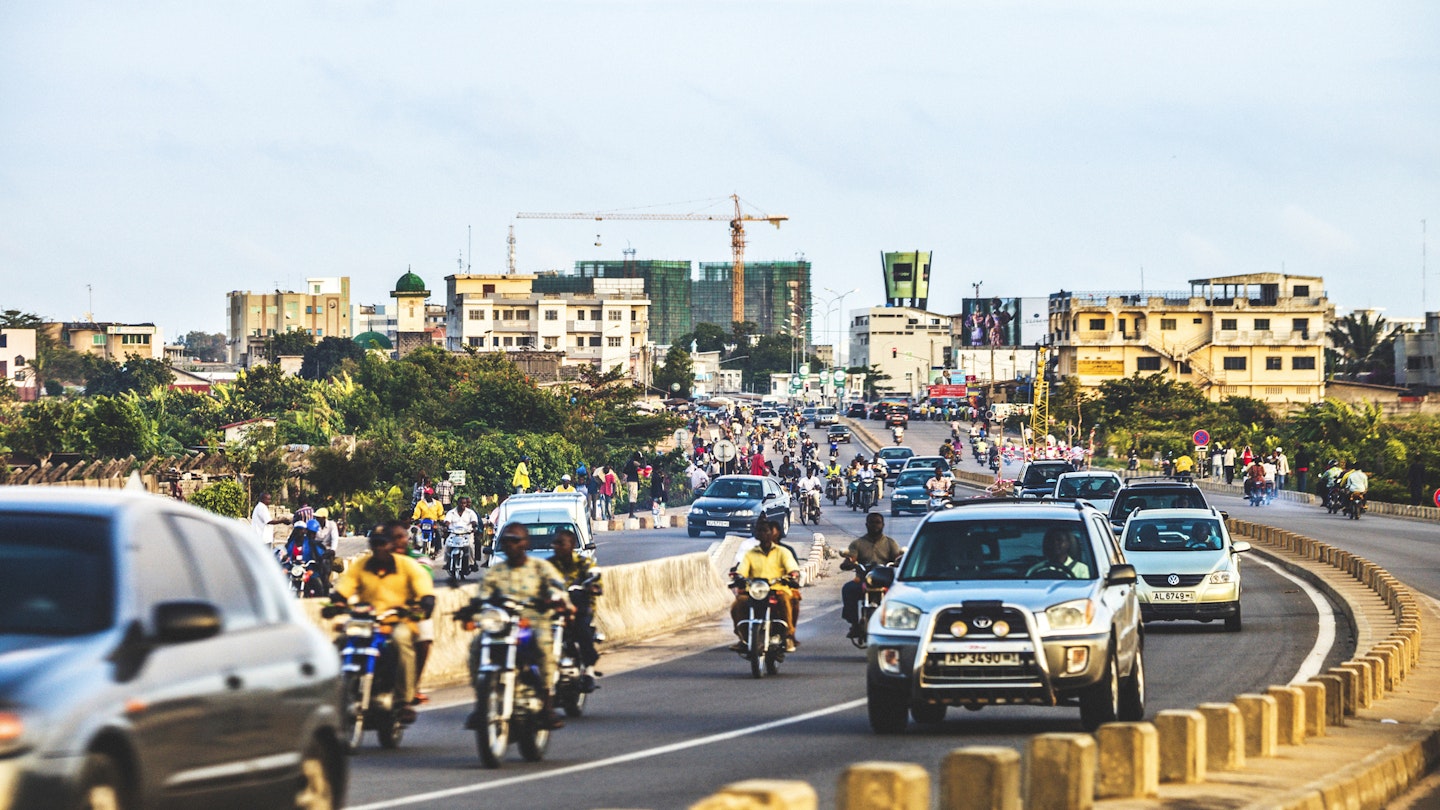Exploring Transportation Options in Benin
Apart from the capital city of Porto Novo and the major tourist attractions of Ganvie and Ouidah, the large majority of the small West African country of Benin goes unnoticed by most travelers.
There are no train services in Benin, and there’s only one commercial airport (Cotonou Cadjehoun International Airport), making internal flights unavailable. A trip to Ganvie will typically be part of a boat tour, and most towns and cities are best explored on foot. Expect to get around primarily by road. Unfortunately, travelers with mobility and access issues will find that there isn’t any special provision in Benin.
Here’s what you need to know about local transportation to explore the length and breadth of Benin, from Abomey in the north to Grand Popo in the south.
Traveling by Car: The Best Way to Explore Benin
Driving is undoubtedly the fastest and most convenient way to navigate through Benin. Renting a car offers a reliable and comfortable mode of transportation, albeit at a relatively higher cost compared to other continents due to the underdeveloped transportation network.
- Car Rental: You can rent a car before or upon arrival at the airport or in Cotonou. An international driving license is required, and prices vary depending on the rental service and age of the driver.
- Road Conditions: Always drive on the right side of the road, stay alert for frequent crossings of domestic animals, and be prepared for potholes and dirt roads.
- Hire a Driver-Guide: A cost-effective option is to hire a vehicle with a driver, who will also act as your guide, taking you to all the destinations you wish to visit. This can cost between $50 and $150 per day.

Live Like a Local: Taking a Bush Taxi
If you are traveling on a budget, using bush taxis is a great option to reduce transportation costs. Bush taxis come in two forms: minivans and private cars. This local mode of transport allows you to travel like the locals do, enhancing your experience in Benin.
- Finding a Bush Taxi: You can easily spot a bush taxi on highways or in busy taxi yards in larger cities. They connect various towns and cities, with fares starting from around $5.
- Experience: There’s no need for prior planning; simply ask about the direction and check for space inside. Expect to share your ride with locals, enhancing the travel experience.
- Cash Payment: Always carry cash for your fare, as this is the only accepted payment method. Stay vigilant against pickpockets and keep your belongings close.

Exploring Short Distances with a Zem
No trip to Africa is complete without a motorcycle experience, known locally as zems in Benin. You can find zems at nearly every street corner and they are ideal for relatively short distances, typically up to 10km (6 miles).
Efficiency: These motorcycles are inexpensive and offer an exciting way to travel. However, always prioritize safety by holding on to your driver for stability while avoiding the carrying of luggage.
The Unreliability of Bus Services
Although buses might be a budget-friendly option, currently in Benin, they are generally not reliable. The bus schedules lack consistency, making it challenging for anyone with a fixed itinerary. Hence, it is advisable to utilize cars or bush taxis for transportation needs.
Navigating Through Benin
Benin is primarily a French-speaking country, and most locals have limited knowledge of English. Therefore, it is crucial to have some knowledge of French or use a translation app for assistance.
Alternatively, hiring an English-speaking guide can be beneficial. You can request recommendations from your accommodation. For navigation, Google Maps is the most reliable application in Benin.




